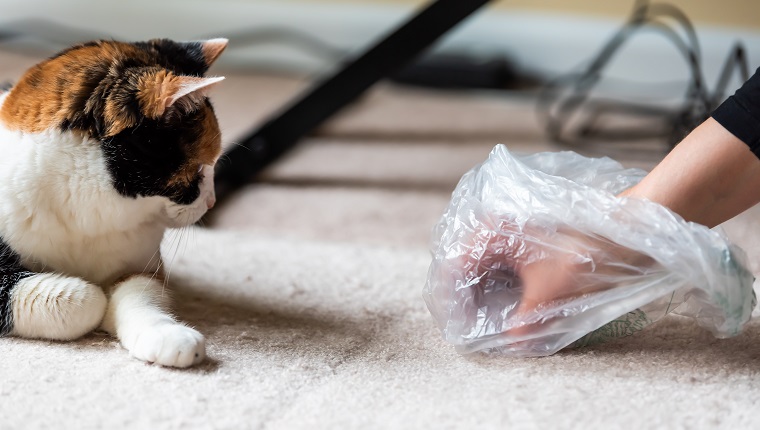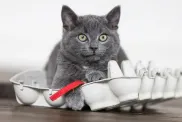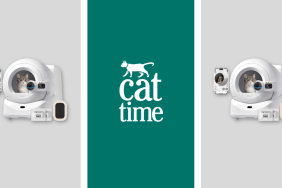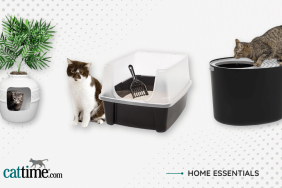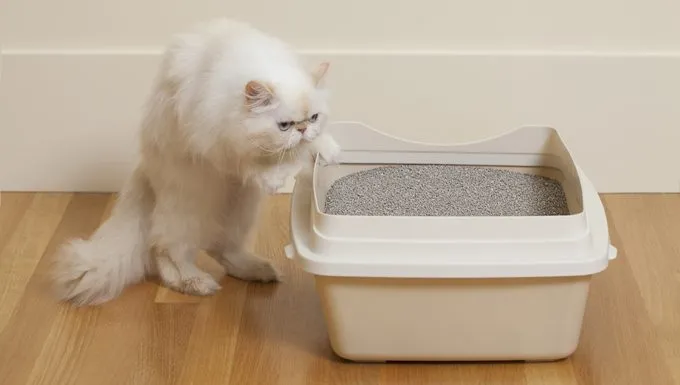
Some cat parents have the unfortunate distinction of struggling with a kitty who suddenly — seemingly out of nowhere — develops an aversion to their litter box.
This can take the form of peeing outside the box, preferring soft towels or carpets, or even pooping directly outside or on the edge of the litter box.
Litter box aversion can drive cat parents bonkers. If you’re dealing with this behavior, you may have tried everything to fix it.
You might have gotten a checkup with the vet for a UTI and received an all clear. You might have tried all different types of litter in the hope that your kitty just decided the feel of a certain clay under their paws was unpleasant. Or you might have tried putting the box in a different location in case something was scaring them.
All of these things are good to try when dealing with litter box issues. But maybe, for you and your cat, it just seems like nothing works.
Sometimes, despite your best efforts, your cat is still uncomfortable with their litter box. In these situations, you might be dealing with a surprising cause of litter box aversion — hip dysplasia.
What Is Hip Dysplasia And What Are The Symptoms?
Hip dysplasia occurs when a cat’s hip joints don’t grow normally. This can lead to degeneration, small fractures, cartilage damage, and other problems.
It’s more common in female than male cats, and certain breeds have a higher predisposition, such as Persian cats and Maine Coons. In fact, as many as 18 percent of Maine Coons may suffer from hip dysplasia.
Hip dysplasia comes in varying severity and, thus, varying levels of pain.
Symptoms can include:
- Decreased activity
- Lameness in a back limb or limping
- Standing with the back legs extra close together
- Pain in the hips
- Excessive licking or chewing around the hip area
- Larger shoulder muscles from trying to avoid putting weight on the back legs
- A “bunny hop” when your cat walks or runs
Connection to Litter Aversion
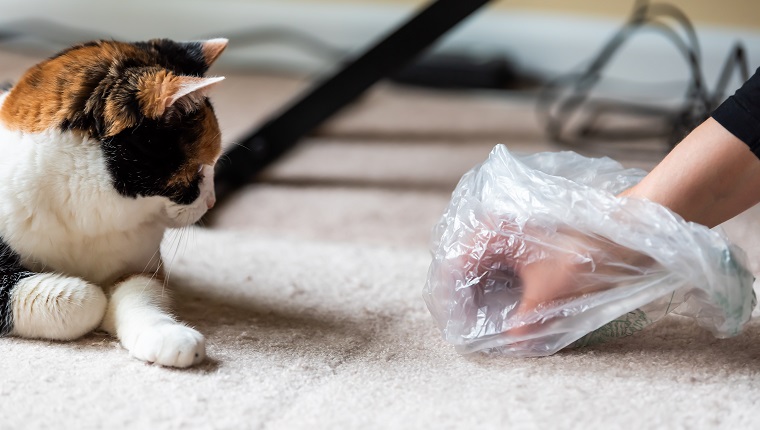
Sometimes, litter aversion can be a symptom of undiagnosed hip dysplasia in cats.
This happens because your cat feels pain in their joints when they try to get into the litter box, so they learn to start avoiding it altogether.
If your cat is peeing or pooping very close to the litter box, this can be a sign that they want to use the box, but they just can’t.
Diagnosis, Treatment, And What You Can Do
If you suspect your cat is showing signs of litter box aversion, take your cat to a vet. A blood panel can show if there’s inflammation in the joints. X-rays can show signs of degeneration.
Treatment can range from physiotherapy to surgery. In less severe cases, your vet may recommend pain medication or anti-inflammatory drugs to reduce swelling in the hips.
If your vet prescribes drugs or a new diet, then you may want to see if you can can fill the prescription online at Chewy’s pharmacy and have the items delivered.
If your cat is diagnosed with hip dysplasia, or if you suspect your cat suffers from it or another painful joint issue, there are easy steps you can take to help the litter aversion problem.
Because your cat may be feeling pain when they try to get into the litter box, buying larger boxes with lower sides can make a huge difference.
To eliminate your cat’s need to step up to get into the litter box altogether, consider cutting a hole in one side of the litter box so they can just walk into the box and not have to step up at all.
You may find that this alone or combined with pain medication from the vet is enough to eliminate their litter aversion altogether.
Has your cat ever stopped using the litter box? What did you do to help them? Let us know in the comments below!
Click the bold links in the article to shop for your cat and support our content!
